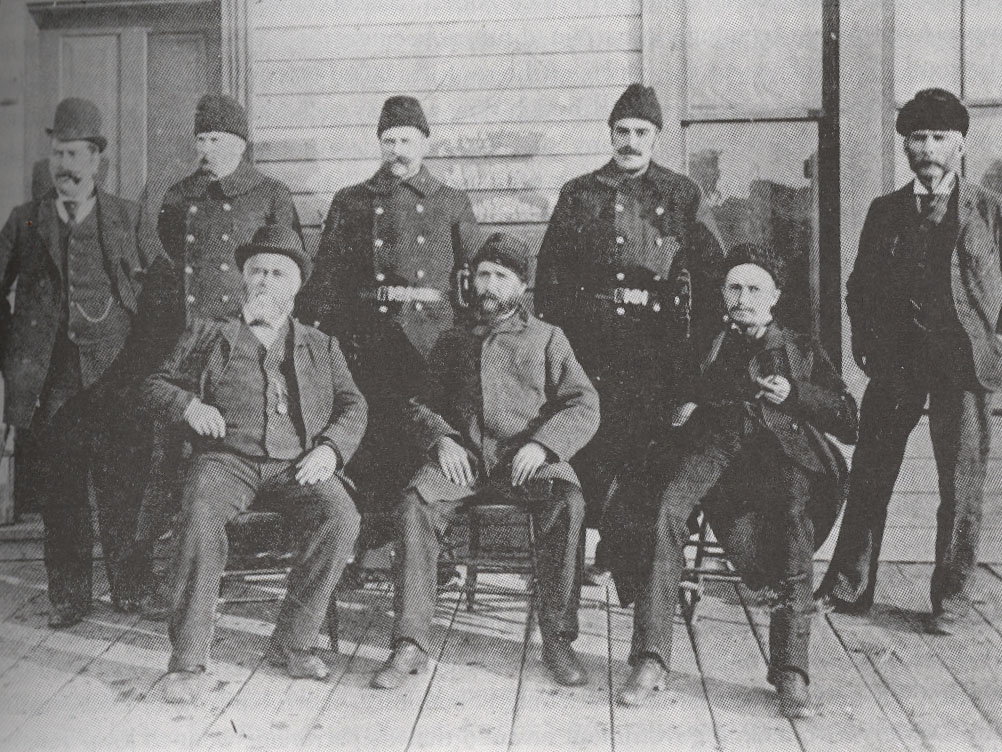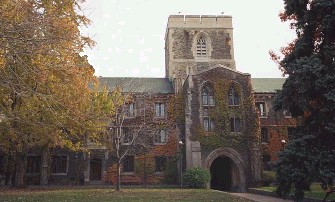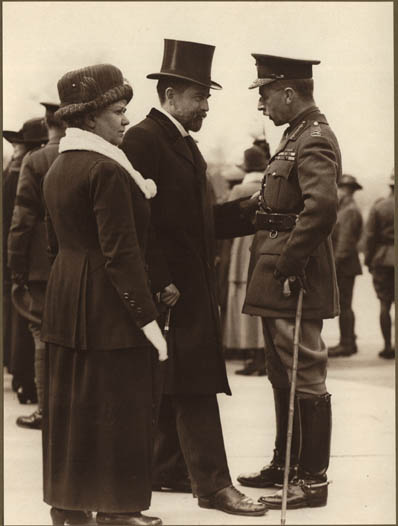|
List Of Canadian Members Of The Privy Council Of The United Kingdom
According to ''The Canadian Honours System'', prior to 1968, 36 Canadian office-holders had been appointed to the Privy Council of the United Kingdom, sometimes known in Canada as the Imperial Privy Council. Counsellors have the prenominal title of "Right Honourable" and the postnominal title "PC", for Privy Counsellor. Several Governors General were appointed to the council, if they were not already members, while Canadian prime ministers were also appointed, with three exceptions ( Alexander Mackenzie, John Abbott and Mackenzie Bowell). Chief Justices were also sworn in, which allowed them to sit on the Judicial Committee of the Privy Council, which was the highest court of appeal for Canada until 1949. Some High Commissioners to London were also sworn into the Imperial Privy Council, as well as a few federal cabinet ministers on the recommendation of the Canadian prime minister. When Canadian appointments to the Imperial Privy Council ended in 1968, the Canadian Privy Council beg ... [...More Info...] [...Related Items...] OR: [Wikipedia] [Google] [Baidu] |
Privy Council Of The United Kingdom
The Privy Council (PC), officially His Majesty's Most Honourable Privy Council, is a formal body of advisers to the sovereign of the United Kingdom. Its membership mainly comprises senior politicians who are current or former members of either the House of Commons or the House of Lords. The Privy Council formally advises the sovereign on the exercise of the Royal Prerogative, and as a body corporate (as King-in-Council) it issues executive instruments known as Orders in Council which, among other powers, enact Acts of Parliament. The Council also holds the delegated authority to issue Orders of Council, mostly used to regulate certain public institutions. The Council advises the sovereign on the issuing of Royal Charters, which are used to grant special status to incorporated bodies, and city or borough status to local authorities. Otherwise, the Privy Council's powers have now been largely replaced by its executive committee, the Cabinet of the United Kingdom. Certai ... [...More Info...] [...Related Items...] OR: [Wikipedia] [Google] [Baidu] |
Francis Alexander Anglin
Francis Alexander Anglin PC (April 2, 1865 – March 2, 1933) was the seventh Chief Justice of Canada from 1924 until 1933. Born in Saint John, New Brunswick, one of nine children of Timothy Anglin, federal politician and Speaker of the House of Commons of Canada, and elder brother to the renowned stage actress, Margaret Anglin. He was educated at St. Mary's College, and received a Bachelor of Arts degree from the University of Ottawa in 1887. Anglin studied law at the Law Society of Upper Canada (which in those days taught law) and was called to the bar in 1888, establishing a practice in Toronto. In 1896 he became Clerk of the Surrogate Court of Ontario, and King's Counsel in 1902. He was appointed to the Exchequer Division of the High Court of Justice of Ontario in 1904 and, thanks to a nomination from the Laurier government, to the Supreme Court of Canada The Supreme Court of Canada (SCC; french: Cour suprême du Canada, CSC) is the Supreme court, highest court i ... [...More Info...] [...Related Items...] OR: [Wikipedia] [Google] [Baidu] |
George Perry Graham
George Perry Graham, (March 31, 1859 – January 1, 1943) was a journalist, editor and politician in Ontario, Canada. In the 1898 Ontario provincial election, he was elected to the Legislative Assembly of Ontario, and re-elected in 1902 and 1905. In 1904, he was appointed to the cabinet as Provincial Secretary by Premier George William Ross and served in that position until the Ross government lost the election of 1905. When Ross resigned as leader of the Ontario Liberal Party in 1907, Graham briefly succeeded him, but quickly left later that year for federal politics when he was appointed Minister of Railway and Canals in the Liberal government of Sir Wilfrid Laurier. Ross won a seat in the House of Commons of Canada in a by-election in 1907. He was defeated in the 1911 federal election that brought Robert Borden's Conservatives to power, but returned to the House of Commons in a 1912 by-election. He did not run in the 1917 election, but then was elected in Essex So ... [...More Info...] [...Related Items...] OR: [Wikipedia] [Google] [Baidu] |
William Thomas White
Sir William Thomas White, GCMG, PC (UK), PC (Can) (November 13, 1866 – February 11, 1955), was a Canadian politician and Cabinet minister. Biography White worked as a reporter for the ''Toronto Evening Telegram'' in 1890, and subsequently worked for Toronto's Assessment Department. He received a Bachelor of Arts degree from the University of Toronto in 1895, and a law degree from Osgoode Law School in 1899. White did not practice law after his graduation, but instead worked as a Managing Director for the National Trust Company, Ltd., becoming its Vice-President in 1911. National Trust was incorporated in 1898 by Senator George Albertus Cox and Edward Rogers Wood. National Trust Company, Ltd. became part of Bank of Nova Scotia as Scotia Trust in 1997. White was initially a Liberal party member, but his views diverged from the party's policies on some key matters. He was a supporter of British imperialism, and joined Clifford Sifton and other Liberals in signing an anti ... [...More Info...] [...Related Items...] OR: [Wikipedia] [Google] [Baidu] |
Arthur Sifton
Arthur Lewis Watkins Sifton (October 26, 1858 – January 21, 1921) was a Canadian lawyer, judge and politician who served as the second premier of Alberta from 1910 until 1917. He became a minister in the federal cabinet of Canada thereafter. Born in Canada West (now Ontario), he grew up there and in Winnipeg, where he became a lawyer. He subsequently practised law with his brother Clifford Sifton in Brandon, where he was also active in municipal politics. He moved west to Prince Albert in 1885 and to Calgary in 1889. There, he was elected to the 4th and 5th North-West Legislative Assemblies; he served as a minister in the government of premier Frederick Haultain. In 1903, the federal government, at the instigation of his brother (who was then one of its ministers), made Sifton the Chief Justice of the Northwest Territories. After Alberta was created out of a portion of the Northwest Territories in 1905, Sifton became the first Chief Justice of Alberta in 1907 an ... [...More Info...] [...Related Items...] OR: [Wikipedia] [Google] [Baidu] |
Charles Doherty
Charles Joseph Doherty, (May 11, 1855 – July 28, 1931) was a Canadian politician and lawyer. Early life and education Doherty was born in Montreal, Quebec, the son of Marcus Doherty, an Irish-born judge of the Supreme Court for the Province of Quebec and Elizabeth (O'Halloran) Doherty. He attended St. Mary's (Jesuit) College and received a Bachelor of Laws degree from McGill University in 1876 winning the Elizabeth Torrance Gold Medal for highest academic achievement. Career Doherty was admitted to the bar in 1877. He was a candidate for the Legislative Assembly of Quebec for the electoral district of Montreal West in the 1881 election, but was defeated. In 1885 he served as a lieutenant with the 65th Battalion, Mount Royal Rifles in the North-West Rebellion. He ran for office again for Montreal Centre in the 1886 election. Doherty was created a Queen's Counsel in 1887. He worked as a lawyer and also taught civil and International law at McGill University prior to ... [...More Info...] [...Related Items...] OR: [Wikipedia] [Google] [Baidu] |
George Eulas Foster
Sir George Eulas Foster, GCMG, PC, PC (September 3, 1847 – December 30, 1931) was a Canadian politician and academic. Foster was a Member of Parliament (MP) and a Senator in the Canadian Parliament for a total of 45 years, 5 months and 24 days. He enjoys the unique distinction of having served in the cabinets of seven Canadian Prime Ministers: Macdonald, Abbott, Thompson, Bowell, Tupper, Borden and Meighen. He coined the phrase "splendid isolation" to praise British foreign policy in the late 19th century. Two factors thwarted whatever ambitions he may have had to become Prime Minister himself: his legally questionable marriage in Chicago to his newly divorced former landlady, and his later involvement in a trust company scandal. Background Born in Carleton County, New Brunswick, Foster received a Bachelor of Arts degree from the University of New Brunswick in 1868. He taught in various high schools and seminaries until 1870 when he was appointed Professor of Classi ... [...More Info...] [...Related Items...] OR: [Wikipedia] [Google] [Baidu] |
William Stevens Fielding
William Stevens Fielding, (November 24, 1848 – June 23, 1929) was a Canadian Liberal politician, the seventh premier of Nova Scotia (1884–96), and the federal Minister of Finance from 1896 to 1911 and again from 1921 to 1925. Early life He was born in Halifax, Nova Scotia. Fielding became leader of the Anti-Confederation Party (Nova Scotia Liberal Party). In 1884, he became Premier and won the 1886 election on a pledge to remove Nova Scotia from confederation. When he failed to do this, he turned to economic matters including developing the coal industry. The Liberal Party of Nova Scotia fared poorly in national elections during the 1880s and early 1890s. The national party advocated policies that would discontinue the national coal subsidy and, for all practical purposes, eliminate Catholic schools in Manitoba, policies disliked by provincial coal miners and Catholics respectively. Fielding forged a more moderate coal policy and defused the school issue, winning back C ... [...More Info...] [...Related Items...] OR: [Wikipedia] [Google] [Baidu] |
Richard John Cartwright
Sir Richard John Cartwright (December 4, 1835 – September 24, 1912) was a Canadian businessman and politician. Cartwright was one of Canada's most distinguished federal politicians during the late 19th and early 20th centuries. He was a cabinet minister in five Liberal governments. He served in the Canadian Parliament for 43 years and 5 months, being an MP from 1867 to 1904 then a Senator until his death in 1912. Prior to Confederation, he had served 4 years, 1 month and 15 days in the Legislative Assembly of the old Province of Canada. Thus, he was a legislator for more than 47 and a half years. He was a vigorous and trenchant orator, and was known as 'the Rupert of debate'. In particular, his debates with his Conservative counterpart, Sir George Eulas Foster, are the stuff of Canadian Parliamentary legend. He was a progressive. A free trader, he stood against the Conservatives' high-tariff policy. Often propounding on the inalienable right of Canadian freeman to vote f ... [...More Info...] [...Related Items...] OR: [Wikipedia] [Google] [Baidu] |
Sir John Rose, 1st Baronet
Sir John Rose, 1st Baronet (2 August 1820 – 24 August 1888) was a Scots-Quebecer politician. He was a member of the Legislative Assembly of the Province of Canada and the Executive Council of the Province of Canada. After Confederation, he held the offices of Solicitor General of Canada, Minister of Public Works and Minister of Finance in the new federal government. In the United Kingdom, he held the offices of Receiver General of the Duchy of Cornwall and Privy Counsellor. In 1872, he was created 1st Baronet Rose, of Montreal. His eldest son inherited the title and in 1909, his second son, Sir Charles Day Rose, was created 1st Baronet Rose of Hardwick House in his own right. His home from 1848, Rosemount, was in Montreal's Golden Square Mile. From 1872, he lived in England at Loseley Park. Early life in Scotland John Rose was born 2 August 1820, at Gask, near Turriff, Aberdeenshire. He was the son of William Rose (b. 1792), of Gask, and Elizabeth (d. 1822), daughter o ... [...More Info...] [...Related Items...] OR: [Wikipedia] [Google] [Baidu] |
Vincent Massey
Charles Vincent Massey (February 20, 1887December 30, 1967) was a Canadian lawyer and diplomat who served as Governor General of Canada, the 18th since Confederation. Massey was the first governor general of Canada who was born in Canada after Confederation. Massey was born into an influential Toronto family and was educated in Ontario and England, obtaining a degree in law and befriending future prime minister William Lyon Mackenzie King while studying at the University of Oxford. He was commissioned into the military in 1917 for the remainder of the First World War and, after a brief stint in the Canadian Cabinet, began his diplomatic career, serving in envoys to the United States and United Kingdom. Upon his return to Canada in 1946, Massey headed a royal commission on the arts between 1949 and 1951, which resulted in the Massey Report and subsequently the establishment of the National Library of Canada and the Canada Council of the Arts, among other grant-giving agencies. ... [...More Info...] [...Related Items...] OR: [Wikipedia] [Google] [Baidu] |
George Halsey Perley
Sir George Halsey Perley (September 12, 1857 – January 4, 1938) was an Americans, American-born Canadians, Canadian politician and diplomat. Early life Born in Lebanon, New Hampshire, the son of William Goodhue Perley and Mabel E. Ticknor Stevens, Perley was educated at the Lisgar Collegiate Institute, Ottawa Grammar School, at St. Paul's School (Concord, New Hampshire), St. Paul's School in Concord, New Hampshire, and at Harvard University where he graduated with a Bachelor of Arts degree in 1878. Perley became a partner in the Perley & Pattee, a lumber company in which his father was senior partner. After Perley & Pattee dissolved in 1893, Perley became head of G.H. Perley & Co which had mills at Pointe-Calumet, Quebec and vice president of the Hull Lumber Company, Ltd., which is operating largely on the upper Ottawa. For many years, Perley was vice president of the Canada Atlantic Railway Company, Canada Atlantic Railway Co., president of the Rideau Club and president of t ... [...More Info...] [...Related Items...] OR: [Wikipedia] [Google] [Baidu] |



_2.577_SIR_RICHARD_J._CARTWRIGHT.jpg)
%2C_Montreal.jpg)

